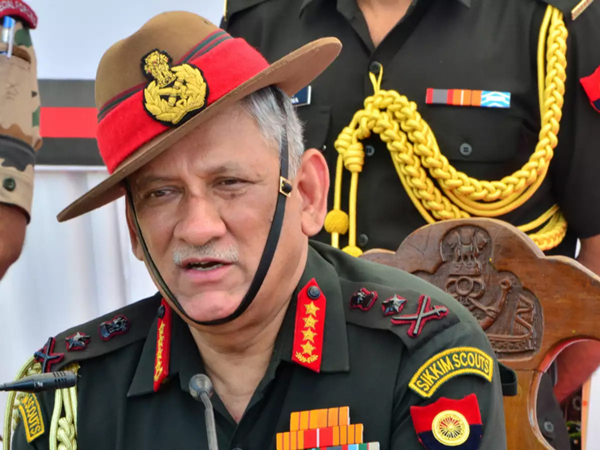‘Network of 3 Services to be integrated’
Excelsior Correspondent
JAMMU, Nov 26: Army chief Gen Bipin Rawat today spoke of ‘No War, No Peace’ situation in which India finds itself saying this situation was created due to proxy war being waged against India by Pakistan using terrorists.
Speaking at the DEFCOM event in New Delhi today, Gen Rawat referred to terrorism and said India today is engaged in fighting proxy war.
“We have entered a no war, no peace scenario,” he said, adding that success in the modern battlefield depends on seamless communication.
The Army chief’s statement comes close on the heels of frequent ceasefire violations by Pakistan army on the Line of Control (LoC) especially in the twin border districts of Poonch and Rajouri where the neighbouring country was trying to push trained militants into Jammu and Kashmir.
However, the Indian Army has successfully thwarted all infiltration attempts by the militants aided and abetted by Pakistan army.
While few Indian Army jawans have attained martyrdom in Pakistan shelling and firing since August 5 when the Central Government had abrogated special Constitutional provisions of Jammu and Kashmir and divided the erstwhile State into two Union Territories of J&K and Ladakh, Pakistan army has suffered heavy casualties and infrastructural losses in the Indian retaliation.
Only yesterday, three Pakistan army troops were reported to have been killed in the Indian Army retaliation across Akhnoor sector.
Admitting that Indian forces today are working with systems that can be compromised, Gen Rawat stressed that there is a need to develop communication systems that will provide secrecy.
“The issue of secrecy is important for the security forces. If it gets compromised, then no plan can work. To bring in secrecy, it is important that we develop indigenous systems. Today we’re operating on systems that can be compromised,” he said.
The network of 3 services will be integrated, he said adding the issue of inter-operability will be addressed.
Defence communication network has brought the three Services (Army, Navy and Air Force) together, he added.
Gen Rawat further said new defence procurement policy is expected next year.
“Technology is fast changing. If we don’t improve procurement cycles, we’ll always be operating with obsolete equipment. Instead of having procurement procedures in concentric circles, we need to go into cyclical form so that simultaneous procurement processes can happen,” Gen Rawat said.


